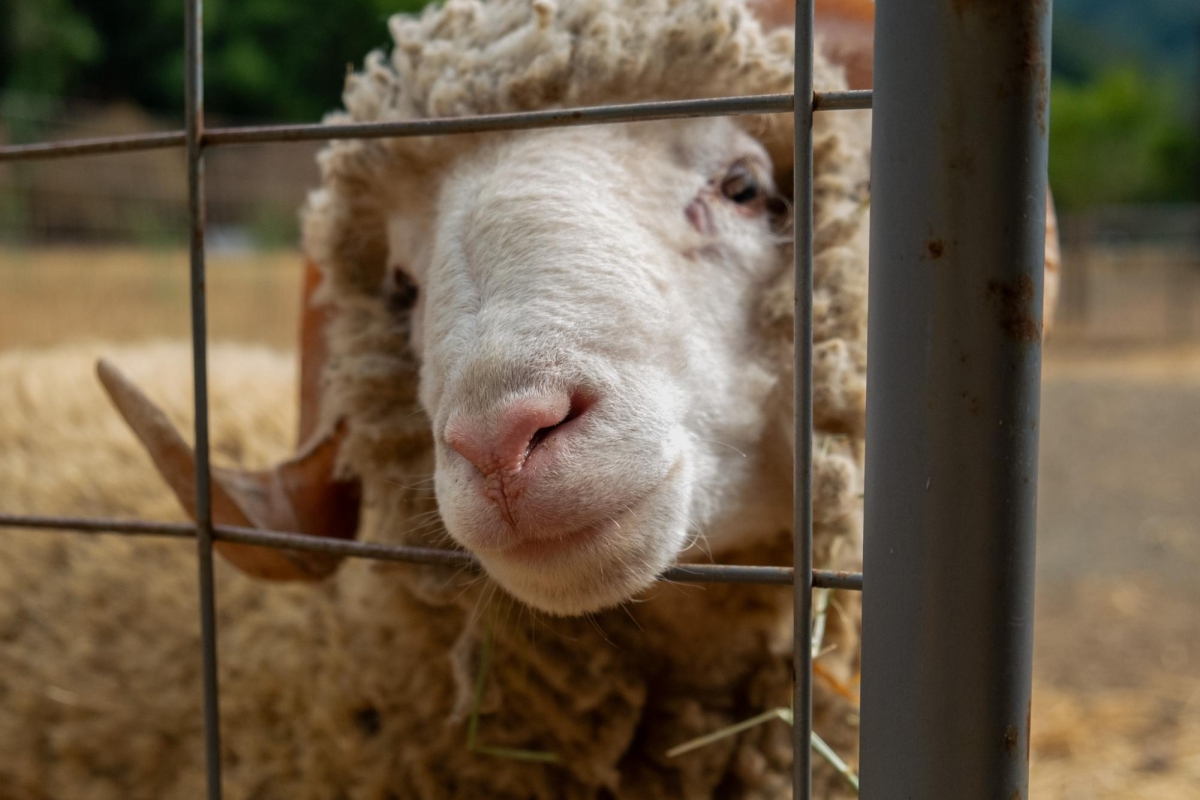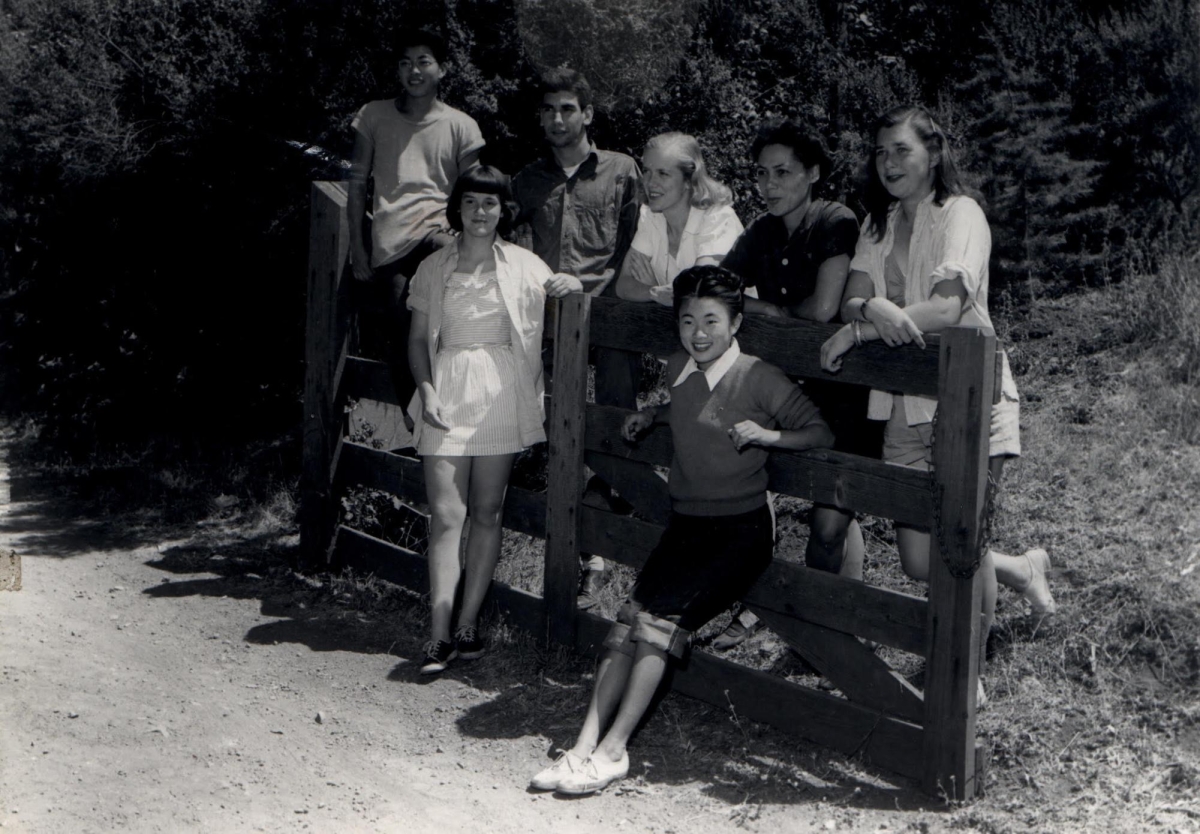With an expansive farm stretching across 1,600 acres of the Santa Cruz foothills, Hidden Villa’s attractions include lush gardens, beautiful hiking trails and adorable animals that visitors can greet and learn about.
The local farm in Los Altos Hills is known among some Palo Alto residents as a non-profit organization centered around environmental education, social justice and community engagement.
Many Palo Alto High School students have visited the farm as children, or participated in summer camps and educational programs that provided hands-on experiences with nature.
Now, as Hidden Villa prepares to celebrate its centennial next year in 2024, the farm is at a crossroads, both at a point of celebration but also working to overcome recent controversy.
Last year, window tiles on the Duveneck house decorated with pre-Nazi era Buddhist swastika symbols were removed in June, but multiple staff resignations in protest of administration’s handling of the symbols led to the closure of Hidden Villa’s summer camp programs for 2022.
Hidden Villa is now run by a different director, Elliot Wright, who is trying to lead the organization beyond the controversy by renewing efforts to increase focus on diversity and inclusion, like implementing multilingual signs across the property.
Jessica DuVal, Hidden Villa’s director of development and communications, explains that there are celebratory events planned throughout the end of 2023 up until the end of 2024.
“One thing we’re talking about is having the summer camp staff in
vited from all of summer camp history to come out to the property and share their stories when they were at Hidden Villa,” DuVal said.
Additionally, Hidden Villa plans on combining the celebration with their annual sheep shearing event in April 2024 and a harvest event in October 2024.
“We’re working on getting a recognizable name of a keynote speaker to kick us off and a big celebration of what the place and people of Hidden Villa have done and looking towards the future,” DuVal said.
The farm’s board of directors plans on organizing reunions in the coming winter. Given the upcoming anniversary, Verde decided to look back at the last 100 years of this local treasure and forward to the future.
Origin of the farm
Frank and Josephine Duveneck purchased the property of Hidden Villa in 1924, nearly 100 years ago and opened it to the public the same year.
Josephine’s autobiography “Life on Two Levels” details the founding and mission of Hidden Villa.
The Duvenecks already had a home in Palo Alto and would spend only weekends and summers at Hidden Villa. However, in 1929 the couple decided to move to Hidden Villa permanently after realizing they enjoyed their time at the farm more than their previous home.
“We purchased the land because we fell in love with it and it has been our policy ever since to preserve and cherish its pristine beauty for other lovers of nature now and in future generations,” Josephine said in her book.
Josephine explains the feeling of guilt that came with being part of the
upper class at a time where most others were out of work and money due to the Great Depression.
“We were living an exclusive life, on an island as it were, with no bridge to the mainland,” Josephine said in her book.
It was also around this time that Josephine began witnessing the racism and lack of diversity present in the Palo Alto and Los Altos community. She became aware of the fact that her spacious property, wealth and privilege provided her with the means to make real change.
“I wondered what I could do as an individual to make an actual concrete program to combat discrimination and further integration,” she said. “What did I have at my disposal to use in such a cause?”
Duval talks more about the Duveneck’s efforts at creating positive change within their community.
“In 1945, they [the Duvenecks] started the first multicultural residential summer camp [in America] and in 1970, on the first Earth Day, they started their environmental education programs,” DuVal said.
Elliot Wright, vice chair and president of Hidden Villa, describes Josephine’s reasoning for the summer camp.
“For Josephine, it was really important to put forward camps that were inclusive and available for anyone to participate in to make sure that barriers to access were addressed and that if they didn’t have the money, or resources, or knowledge or had fear-based barriers that she’d knock all of them down so that all kids can participate,” Wright said. “Why did she do it? It’s who she is.”
Hidden Villa now
Since its creation, Hidden Villa’s mission has remained the same. According to the website The Trust for Hidden Villa, the farm’s “passion for connecting people to their food, their environment and to issues of social justice is woven through everything we do.”
The trust for Hidden Villa was established in 1960 by Frank and Josephine. When they passed away, their children chose to donate their land in order to keep the trust alive.
David Duveneck, grandson of the founders Frank and Josephine Duveneck and a member of the Hidden Villa board of trustees since 2008, explained how Hidden Villa became a nonprofit organization.
“My grandparents went to them [their children] and said ‘What do you want to do with Hidden Villa? We [Josephine and Frank] would like to turn it into a nonprofit so we can keep all of the programs going, but it’s your call,’” Duveneck said.
The trust serves to continue Josephine’s original mission by funding Hidden Villa’s summer camps, environmental education program and donations of the farm’s organic produce to the local food banks.
“We [Hidden Villa] have partnerships with Community Services Agency Mountain View, a health human services education and food pantry,” Wright said. “We get thousands and thousands of pounds of food out each year to them and we have about 800 families that we serve through CSA.”
It is clear that after a century, Hidden Villa’s efforts at preserving Josephine and Frank’s original purpose have made an impact on the Palo Alto community. The farm’s board of directors view the farm’s 100 year anniversary as a time to reflect on its original mission.
“I hope that every day we truly are living their vision of that place and I think we’re doing a really good job,” DuVal said. “The one [question] that we’re really asking ourselves is: what can we be doing more of? How can we continue to serve our mission in a way that is relevant to what’s happening around us today?”
Duval’s reflections of Hidden Villa’s current involvement in the Palo Alto and Los Altos’s community align with Wright’s ideas about Josephine’s similar goals surrounding community support.






